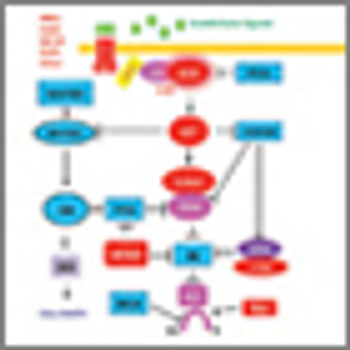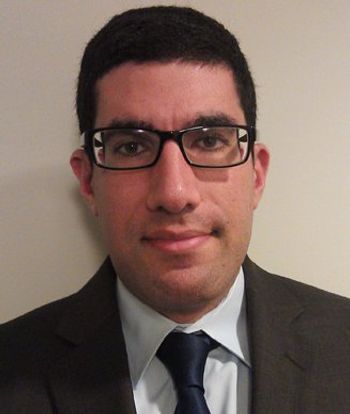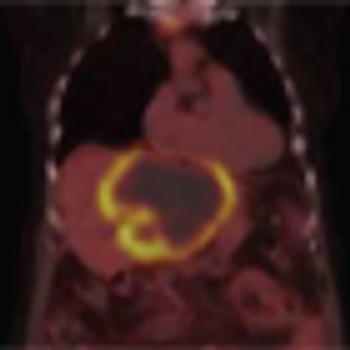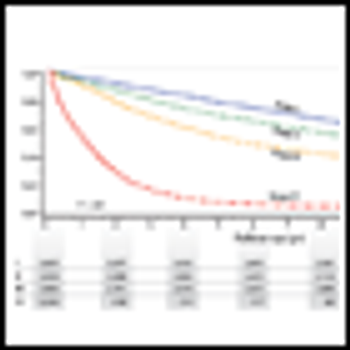
A study of cancer registry data from 29 European countries shows major improvements in both cancer diagnosis and treatment as well as large differences in outcomes for cancer patients depending on the country where treatment took place.

Your AI-Trained Oncology Knowledge Connection!


A study of cancer registry data from 29 European countries shows major improvements in both cancer diagnosis and treatment as well as large differences in outcomes for cancer patients depending on the country where treatment took place.

The strongest aspect of TCGA is that the data are publically available, fueling the input needed for unparalleled discovery. As the broader scientific community continues to analyze and integrate TCGA data with their own datasets, it is highly likely that breast cancer patients will benefit.

TCGA’s efforts to dissect the genomic complexity found in breast cancer patients represents only the beginning of a journey toward better understanding of the intricacy of the events that lead to this disease. Additional efforts are required to provide tailored and effective therapeutic interventions.

Shortly after the rollout of the new healthcare exchanges, we asked the members of ONCOLOGY’s Editorial Board to share their impressions of what they were seeing-and what they expected to see-in terms of the effects of the ACA on practicing oncologists and their patients.

The development and approval of oncology therapeutics has been facilitated by the cooperation and coordination of regulatory practices between the EMA and the FDA. However, there continue to be important differences between the decisions of the two agencies.

This article aims to provide an overview of The Cancer Genome Atlas findings, with a particular focus on their potential biological relevance and therapeutic implications.

In this interview we discuss advances in whole-genome analyses, as well as novel blood-based assays in development to help diagnose and follow cancer patients through their treatment.

Although the room was dark, the moon streaming through the windows cast uneasy half-shadows on the carpet. The only sound was the rhythmic ticking of a mantel clock. As I peered in into the gloom I was startled by a thin woman, wrapped in lace, standing across from me.

The FDA has approved sorafenib (Nexavar) for the treatment of metastatic differentiated thyroid cancer.

In this podcast, we discuss whether all male colorectal cancer patients over the age of 60 should be screened for prostate cancer.

A 65-year-old woman with rheumatoid arthritis and autoimmune hepatitis presented to clinic for evaluation of a liver mass. Six months prior to presentation, workup was initiated for elevated liver enzyme levels.

The historical rationale for the 340b program is a good one: indigent patients do need reliable access to prescription drugs, and entities meeting this need should be supported. However, the evolution of the 340b program has strayed widely from its original intent.

If payments were bundled, we would be accountable to evaluate our treatment plans, follow-up visits, tests, and imaging. We need a system that rewards us for excellent care and allows the costs to be presented to our patients.

An analysis of four randomized clinical trials from Europe shows that HPV-based screening resulted in a greater long-term protection from invasive cervical cancer compared with a Pap test.

This slide show features highlights from the 2013 European Cancer Congress, including trials on PSA screening, melanoma, ovarian cancer, HER2-positive breast cancer, lung cancer, and colorectal cancer.

Patients with early-stage breast cancer who received radiation therapy had a higher risk of heart disease, due to the exposure of their heart tissue to the treatment, according to a 48-patient study by Columbia University.

Delivering patient-centered care and engaging in shared decision-making should be top priorities for oncologists responding to the current crisis in the quality of cancer care delivery, according to a recent Institution of Medicine report.

The American Society of Clinical Oncology (ASCO) today issued its second “Top 5” list of tests and treatments that are routinely used by oncologists despite a lack of evidence that they are cost effective or beneficial to patients.

The tobacco industry has, in effect, caused the biggest toxic spill in history, one that has very literally killed millions of Americans. It is time that the courts compel the industry to clean up their mess.


In a case of a patient with impaired decision-making, is the physician obligated to go through with a transplant when the transplant-related mortality would be on the order of 50%, and possibly as high as 80%?

We discuss colorectal cancer screening with two gastroenterologists, including results from two recently published studies showing long-term effects of screening.

New ASCO and CAP guidelines recommend HER2 testing for all newly diagnosed breast cancer patients with either early-stage invasive or metastatic disease.

ACOs can provide the structure, but it’s up to the stakeholders to establish mutually agreeable goals for this new care delivery model. Achieving these goals will require a different set of dialogues and conversations among stakeholders, and patients and their advocates must have seats at the table.

The facts presented about screening should be tailored to the patient’s exact situation, and the patient’s values should be used to guide the final decision. For younger, healthy men, PSA screening should continue to be strongly considered.

The Task Force’s recommendation against PSA screening for prostate cancer is based on the best available science and the knowledge that, while we all want to prevent suffering and death from prostate cancer, PSA screening simply does not get us there.

Once a patient has been appropriately educated by an informed healthcare provider about the possible benefits of PSA screening, then patient preference as part of shared decision making regarding PSA screening should be considered in all cases.

It may be appropriate to offer prostate cancer screening to carefully selected men with a previous history of colorectal cancer. However, the risks and benefits of establishing the diagnosis in this setting need to be considered and discussed with them.

Not all patients with colorectal cancer are candidates for such screening, however, as a remaining life expectancy of at least 10 years is generally required in order for PSA screening to yield a significant mortality benefit.

Men aged 75 and older generally do not benefit from annual PSA screening, but a new study shows that Medicare spending on PSA screening for this population continues.